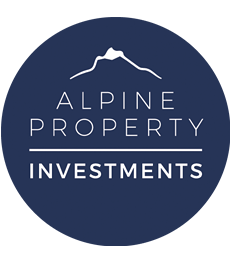A. Once you have found the Swiss property for sale you wish to purchase and you’ve paid a deposit (where applicable), you appoint a Swiss Public Notary who acts on behalf of both yourself and the seller.
He or she will draw up all the legal documents needed for the purchase / sale including the application for the authorisation to purchase, the Deed of Sale and applying for your Resident B permit if this is your preferred route.
In Valais, post November 23rd 2007, unless you are buying as a Resident B/C Permit, purchasing a re-sale property with a Foreigner Permit or buying a project of “Special Cantonal Interest” (Mer de Glace - Haute Nendaz, Thermes Parc - Val d’Illiez), the Notary cannot actually have you sign the Deed of Sale, until such time as they have received an authorisation from the appropriate Canton where you plan to purchase your property.
Authorisations are allocated a couple of times per year, usually at the beginning and the middle of the year and are applied for through “The Letter of Intention to Purchase” (Valais) and “Letter of Promise” (Vaud). These documents are sent to the Canton for approval.
Once the notary receives the notification of an authorisation being granted, you have 30 days to sign the Deed of Sale prepared by the Notary or your authorisation is terminated. On signing the Deed of Sale, the appropriate payments are made dependant on what you are buying. This will all be laid out in your Deed of Sale.
If you are purchasing a re-sale property in Switzerland that has a “foreigner permit”, you are able to sign the Deed of Sale as soon as is convenient for you. Transfer of ownership of these properties usually takes from 12 - 16 weeks.
If you are applying for your Residents B Permit to buy a “Swiss Resident” property, you will not be able to sign the Deed of Sale until you receive your B permit. Any reservation deposit paid, is fully refundable should your Residency application be unsuccessful and is noted in your reservation form.
Should you not be able to return easily to sign the Deed of Sale and wish to sign by proxy, you can either complete the necessary paperwork in either your own country of origin or when visiting Switzerland at the time of looking for property.
If arranging a Proxy in the UK, you will need to go to your local Notary Public (not a Lawyer) with the relevant documents (these will be sent to you) and sign in their presence, as well as providing copies of passport(s). In the UK, the Foreign Office is legally required to counter stamp these documents, validating the Notary Public.
If creating a proxy in Switzerland, the notary handling your purchase can arrange this, or as in most circumstances, our partner in Switzerland, whom you meet to view properties during your visit, would be happy to sign on your behalf.
In Europe, measurements of property are in m², while in the Canada its Sq ft. How do I convert one to the other?
This is very easy to do. For quick conversions, switching from Sq ft to m², you simply divide by 10 and from m² to Sq Ft multiply by 10. For more accurate conversions, you can use the formula 1m² = 10.76ft².
